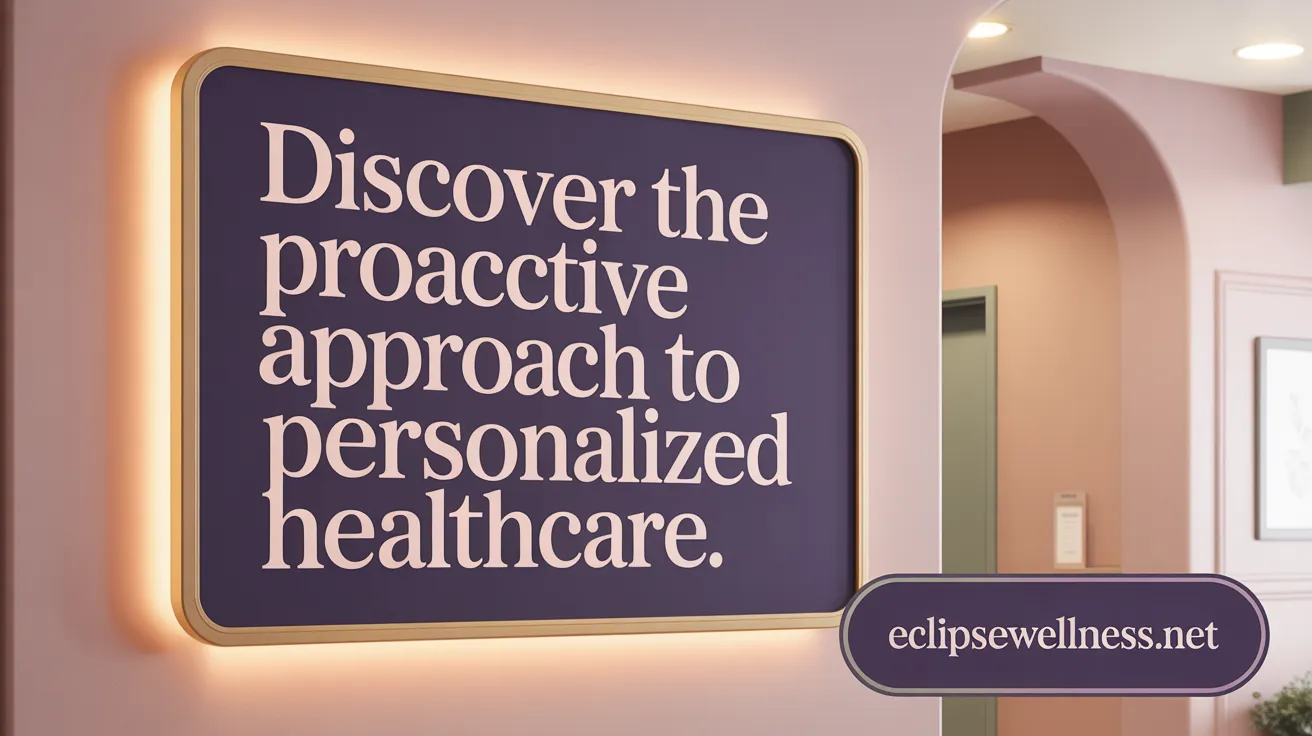Introduction to Personalized Care and Patient Engagement
In today's healthcare landscape, personalized care stands as a transformative approach that enhances patient engagement and improves clinical outcomes. By tailoring healthcare strategies to individual patients’ genetic profiles, lifestyles, and social contexts, healthcare providers can empower patients, foster collaboration, and shift from reactive treatment to proactive health management. This article explores how personalized care reshapes patient engagement and drives better health results through innovative strategies, technology integration, and collaborative care models.
Understanding Personalized Health Care: A Proactive Framework

What is personalized health care and how does it function?
Personalized health care is a proactive framework designed to maximize an individual's health while minimizing disease risks. It tailors wellness plans based on a patient's unique genetic makeup, health history, lifestyle, and social determinants of health. Unlike traditional reactive care, personalized health care focuses on early detection and prevention.
Key components of personalized health planning
This approach involves several collaborative steps between patients and healthcare providers. The process starts with patient self-assessment and clinician evaluation to identify health risks. Together, they set shared health goals and develop personalized health plans that include specific strategies and timelines. Care is then coordinated with follow-ups to support ongoing patient engagement and behavior changes.
Transition from reactive to proactive healthcare
Personalized health care represents a shift from treating illness after symptoms appear to anticipating health issues before they manifest. By emphasizing wellness and precise, individualized therapies, providers can intervene earlier, reducing the progression of chronic diseases and improving overall outcomes as described in predictive and precision medicine.
Role of predictive technologies and early intervention
Advanced predictive technologies, including genomics and biometric data, are central to personalized care. These tools assess individual risk profiles, enabling timely interventions when patients are most likely to benefit (Personalized Health Planning Process). Early action on these insights helps delay or prevent chronic disease development.
Impact on chronic disease management
Chronic diseases often result from a complex interplay of genetic and environmental factors. Personalized health care addresses this by incorporating comprehensive risk assessments and tailored plans that encourage lifestyle modifications and effective management. Early intervention increases the likelihood of better health outcomes and reduced healthcare costs, aligning with evidence showing improvements in patient engagement and outcomes through such strategies.
Patient Engagement: The Cornerstone of Personalized Care

What is patient engagement and why is it vital in personalized care?
Patient engagement refers to patients understanding the importance of actively participating in their healthcare. It encompasses possessing the knowledge, skills, and confidence needed to manage one’s health effectively. This active involvement empowers patients to perform health-promoting behaviors integral to managing their conditions. It is vital in personalized care because engaged patients tend to follow treatment plans more closely, adopt healthier behaviors, and experience better clinical outcomes.
What evidence links patient engagement with improved health outcomes?
Multiple randomized controlled trials show that increasing patient engagement leads to better health effects. For example, in diabetes management, studies report significant reductions in HbA1C levels, with some also noting improvements in lipid profiles and blood pressure. Even brief interventions, lasting around 6 to 8 weeks, can produce meaningful benefits. Such evidence underscores engagement as a critical factor in effectively managing chronic diseases (Patient engagement interventions).
How is patient engagement measured?
The Patient Activation Measure (PAM) is a widely used and validated tool to assess engagement. It captures key dimensions including the perceived importance of the patient’s role, confidence in managing health, knowledge, and the ability to take action. PAM scores can guide clinicians in tailoring interventions to improve patients' capabilities and motivation.
What roles do short interventions and technology play in fostering engagement?
Short-duration interventions have proven successful at boosting engagement. Digital technologies including mobile apps, virtual environments, and remote monitoring encourage patients to participate actively by providing customized education, reminders, and real-time feedback. These tools help bridge the gap between knowing and doing, making it easier for patients to adopt and maintain healthy behaviors.
How does patient engagement benefit chronic disease management?
For chronic conditions like diabetes, cardiovascular disease, and hypertension, higher patient engagement correlates with better management, improved biomarkers, fewer complications, and reduced healthcare utilization. Engaged patients take proactive roles, which results in lower hospital readmissions and improved overall quality of life. Incorporating engagement as a metric in risk assessments supports personalized strategies for these patients (Health outcomes and patient engagement.
The Role of Technology in Enhancing Personalized Care and Engagement

How do technological tools advance personalized care and patient engagement?
Digital health platforms provide tailored education and communication tools that help patients better understand and participate in their care. These platforms deliver customized care plans, health data visualizations, and timely reminders, creating more engaging and supportive healthcare experiences (Personalized care strategies).
Remote patient monitoring (RPM) integrates real-time health data from wearable devices and home sensors, allowing healthcare providers to track patient status continuously. This continuous monitoring supports early intervention, timely treatment adjustments, and reinforces patient accountability through ongoing feedback (Next-Generation Care Plans, Personalized Healthcare Experiences).
Artificial intelligence (AI) plays a crucial role by analyzing large volumes of health data to personalize interactions and treatment plans. AI helps predict patient risks, optimize medication doses, and identify personalized preventive strategies, enabling care that precisely matches individual needs (Personalized Healthcare Experiences, Personalized Health Care.
Wearables and mobile applications empower patients with tools for self-management by tracking vital signs, physical activity, medication adherence, and symptom reporting. These technologies encourage active patient participation, enhance health literacy, and facilitate communication between patients and providers (Patient engagement tools, Personalized Healthcare Experiences.
Despite these advances, challenges exist including safeguarding data privacy, ensuring ethical handling of sensitive information, and overcoming gaps in healthcare professionals’ digital literacy. Proper governance, training, and secure data infrastructures are necessary to fully realize the benefits of technology while protecting patients (Personalized Healthcare and Patient Safety, Personalized Nursing and Healthcare).
Technology thus serves as a powerful enabler of personalized care and engagement, offering dynamic, patient-centered approaches that improve health outcomes and patient satisfaction (Personalized care benefits, Personalized Patient Care).
Collaborative Care Models and Personalized Health Planning
What are collaborative approaches in personalized care?
Collaborative approaches in personalized care focus on partnership between patients and healthcare providers to tailor health plans.
The Personalized Health Planning (PHP) process
Personalized Health Planning involves several key steps:
- Patients perform self-assessments to reflect on their health status and motivation.
- Clinicians conduct comprehensive health evaluations.
- Both work together to establish shared health goals.
- Health coaches or care managers support goal setting and care coordination.
Shared goal-setting between clinicians and patients
Shared decision-making prioritizes patient values and preferences, fostering ownership of health.
Goals address medical conditions, behavioral changes, and lifestyle factors.
Joint goal setting enhances trust and satisfaction.
Contribution of health coaches and care managers
Health coaches assist in translating goals into actionable plans.
Care managers provide ongoing support, education, and monitor progress.
They help address challenges and adjust care plans as needed.
Integration of social determinants of health
Social determinants such as transportation, finances, and environment are assessed.
These factors are incorporated into care plans to make interventions practical and effective.
Addressing social needs improves adherence and health outcomes.
Impact on patient satisfaction and health outcomes
Collaborative modeling leads to stronger clinician-patient relationships.
Studies show improved metrics including blood pressure and hemoglobin A1c.
Patients report higher satisfaction and reduced unplanned visits.
This approach aligns care with individual circumstances, supporting proactive health management.
Personalized Nursing: Bridging Patient Needs and Positive Outcomes
How does personalized nursing contribute to patient engagement and outcomes?
Personalized nursing targets the unique needs, preferences, and circumstances of each patient by tailoring interventions specifically to them. This customized approach improves patient engagement in health care by fostering trust and enhancing communication, making patients feel truly cared for and understood (Personalized Nursing and Healthcare.
Tailoring nursing interventions to individual needs
Nurses adapt care plans to address clinical conditions alongside emotional, social, and cultural factors. This holistic perspective promotes adherence to treatments and empowers patients through education and active participation in their health care (Personalized Nursing and Healthcare.
Impact of personalized nursing on patient satisfaction and adherence
Studies show that personalized nursing significantly elevates patient satisfaction levels. When patients perceive care as individualized, they experience less anxiety and depression, resulting in better overall health outcomes. Enhanced therapeutic relationships improve adherence and reduce complications (Personalized Nursing and Healthcare).
Role in managing emotional and cultural factors
By integrating psychological support and cultural sensitivity into care, personalized nursing addresses patients’ diverse backgrounds and emotional challenges. This inclusive approach strengthens patients’ trust and willingness to engage in their treatment (Patient experience examples).
Utilization of genomics and education in nursing care
Although patient knowledge of genomics is limited, integrating genetic information into nursing care facilitates more precise treatments. Ongoing nurse and patient education are vital to successfully implement genomics-informed personalized nursing (Personalized Nursing and Healthcare.
Challenges and future directions including technology integration
Resource constraints and nurse burnout remain barriers to widespread adoption. However, advances in artificial intelligence, wearable technology, telemedicine, and data analytics present opportunities to enhance personalized nursing. These tools can augment nurses’ capabilities, improve monitoring, and support decision-making (Personalized Nursing and Healthcare, How health care is evolving to improve patient experience).
Personalized nursing embodies a compassionate, patient-centered model that bridges clinical expertise with individualized care, significantly boosting patient engagement and health outcomes (How Patient-Centric Care Is Transforming Healthcare).
Improving Patient Experience Through Tailored Communication and Support

Why is personalized communication critical in enhancing patient engagement?
Personalized communication involves much more than simply addressing a patient by name. It customizes messages, reminders, and educational content to match individual patients’ health conditions, preferences, and communication styles. This tailored approach makes patients feel recognized and valued, which fosters greater trust and satisfaction (Personalized communication in healthcare).
How do multi-channel digital tools and patient portals support this?
Healthcare organizations increasingly use digital platforms such as patient portals, mobile apps, email, and text messaging to deliver personalized content. These tools provide convenient access for patients to receive timely reminders, results, and tailored health information. They also support two-way communication, enabling patients to feel more involved in their care (Patient engagement tools, Personalized Healthcare Experiences).
What impact does this have on adherence, satisfaction, and trust?
Tailored communication enhances adherence to treatment plans by addressing specific patient concerns and preferences. When patients receive relevant and timely information, their engagement improves, leading to better health outcomes and reduced costs. Moreover, patients report higher satisfaction because they experience care as individualized and supportive, strengthening the patient-provider relationship (Impact of Patient Engagement on Healthcare Quality, Personalization Enhances Patient Experience).
Examples of effective patient engagement practices
- Using medication reminders customized to a patient's schedule (Personalized communication benefits
- Sending educational materials suited to a patient’s diagnosis and health literacy (Patient education strategies
- Integrating appointment alerts via preferred channels like SMS or email (Patient engagement tools)
- Offering personalized billing and payment plans (Personalization Enhances Patient Experience
How can technology address barriers like time constraints?
Time limitations often impede providers' ability to deliver personalized communication. Digital tools and automation can automate repetitive tasks, freeing providers to focus on personalized care where it matters most. AI-driven systems help target outreach effectively, ensuring patients receive the right communication at the right time without overburdening staff (Impact of Patient Engagement on Healthcare Quality, Personalized Patient Care and Automated Reminders, Digital personalization strategies.
Outcomes and Future Directions: Transforming Healthcare with Personalized Care

What are the outcomes and future prospects of personalized care?
Personalized care plans have demonstrated notable clinical improvements, including better management of chronic diseases such as diabetes and hypertension. Patients with individualized plans show improved control of blood pressure, HbA1C levels, and lipid profiles, contributing to enhanced overall health outcomes (Personalized Care Plan for Type 2 Diabetes, Personalized healthcare, Patient engagement in health care.
Beyond clinical metrics, personalized care reduces hospital readmissions and cuts healthcare costs by preventing complications and unnecessary interventions. For example, targeted care management and customized follow-ups effectively lower avoidable high-cost hospital visits (personalized care approaches, Impact of Patient Engagement on Healthcare Quality).
Precision medicine and genetic testing play a pivotal role by enabling tailored therapies that minimize adverse effects and increase treatment efficacy. This approach encourages higher patient engagement and ownership of their health journey (Personalized medicine overview, Precision medicine benefits, Taking Charge: How Precision Medicine is Transforming Patient Engagement).
Emerging trends highlight the growing use of artificial intelligence (AI) and biomarker technology to integrate complex data from genetics, environment, and lifestyle. These innovations support early detection and informed decision-making, steering healthcare toward proactive prevention rather than reactive treatment (personalised medicine transformation by 2030, Personalized Healthcare Experiences, Personalized Health Care.
Furthermore, increasing patient agency and health literacy empower individuals to participate actively in managing their health, bolstered by digital tools and personalized communication strategies (Personalized Nursing and Healthcare, Personalization Enhances Patient Experience, Personalized communication in healthcare.
Together, these advances promise a more equitable, efficient, and patient-centered healthcare system geared toward improved outcomes and sustainable care delivery (Personalized Health Care, Impact of Patient Engagement on Healthcare Quality, How Personalized Care Improves the Well-being of Patients with Complex Needs).
Conclusion: Embracing Personalized Care for Enhanced Patient Engagement and Outcomes
Personalized care is revolutionizing healthcare by placing patients at the center of their health journeys through tailored strategies, collaborative planning, and advanced technologies. By actively engaging patients and addressing their unique genetic, environmental, and social factors, personalized care enhances adherence, satisfaction, and clinical outcomes. The integration of digital tools, personalized nursing, and precision medicine further empowers patients and providers alike. As healthcare continues to evolve with innovations like AI and biomarker analytics, embracing personalization promises a future of more effective, efficient, and equitable care, transforming patient experiences and outcomes for the better.
